
As noted in the previous post, what follows can also be found in this month’s The White Worker, but the timing was too perfect not to share it here as well: after all, today, February 4th, is the 123rd anniversary of the birth of Charles Lindbergh
The article I am about to share is fairly well-known among fans of Charles Lindbergh, but it is reprinted here for two reasons: First, its content is as timely and relevant now as when it was originally published in Reader’s Digest in November, 1939; perhaps more so, as we now have the advantage of being able to look back at his predictions and see just how right he was.
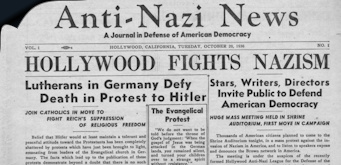
When this article was written, the Second World War had started only two-months prior, and years of anti-German propaganda all but guaranteed that America was going to eventually get involved and side with the allies. Lindbergh tried to warn his countrymen that to do so was morally wrong, and potentially catastrophic to the White Race, urging Americans to recognize the war for what it was: a European conflict pitting Whites against Whites, largely instigated by those who would profit from it, and that it would ultimately be disastrous for White civilization. He argues that a more immediate and pressing threat lay in the erosion of racial and cultural barriers caused by the increased mobility, and the resultant globalization, that advances in aviation and industry were sure to bring.
The other reason to put this article once more into circulation is simply to introduce Charles Lindbergh to younger White Americans who may not know who he is, and how this American hero urged White Americans to defend their Race and Culture. Proof that this struggle has been going on for a long time, and that off-and-on throughout our struggle, persons of high merit and prestige have believed as we do, and labored with us. For those not in the know, it is important to understand just how big-a-deal it was that Lindbergh wrote what follows. In our fractured and digitally walled-off society, the concept of “a house hold name” has fallen by the wayside. I guess “influencer” is the modern word for it, but it pales by comparison. For example, I don’t use social media, so when I looked at a list of the top-25 influencers for 2024, I did not recognize even one. Never heard of them.
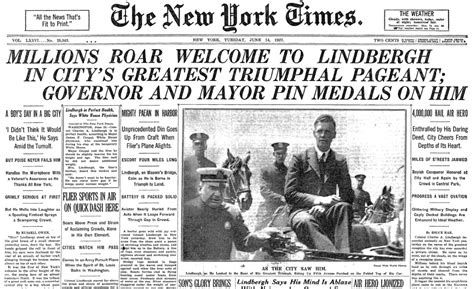
But in the days of newsprint and radio, when telephones were for talking into and instant messaging was a telegram from Western Union, some people achieved a degree of renown so great that everyone, everywhere, knew their name. Charles Lindbergh was one such person. Unless you lived in a small tribe in Africa, or a flooded rice-paddy in the orient, you knew that Charles Lindbergh was the first person to fly solo, non-stop, across the Atlantic Ocean in 1927. The masses were so enthralled with his adventure that his biographer says people were “behaving as though Lindbergh had walked on water, not flown over it”. The day of his ticker-tape parade in New York it is estimated that over 4 million people saw him. Over 200 songs were written in his honor. His airplane, the “Spirit of St. Louis” currently hangs in the Smithsonian. And in December of 1927, Congress awarded him the Medal of Honor.
Such was the reputation of the man that wrote the following:

Aviation, Geography, and Race
Charles A. Lindbergh
Reader’s Digest, Vol. 35, November 1939
Aviation has struck a delicately balanced world, a world where stability was already giving way to the pressure of new dynamic forces, a world dominated by a mechanical, materialist, Western European civilization. Aviation is a product of that civilization, borne on the crest of its outlook. Typical also of its strength and its weakness, its vanity and its self-destruction – men flung upward in the face of God, another Icarus to dominate the sky, and in turn, to be dominated by it; for eventually the laws of nature determine the success of human effort and measure the value of human inventions in that divinely complicated, mathematically unpredictable, development of life at which Science has given the name of Evolution.
Aviation seems almost a gift from heaven to those Western nations who were already the leaders of their era, strengthening their leadership, their confidence, their dominance over other peoples. It is a tool specially shaped for Western hands, a scientific art which others only copy in a mediocre fashion, another barrier between the teeming millions of Asia and the Grecian inheritance of Europe – one of those priceless possessions which permit the White race to live at all in a pressing sea of Yellow, Black, and Brown. But aviation, using it symbolically as well as in its own right, brings two great dangers, one peculiar to our modern civilization, the other older than history. Since aviation is dependent on the intricate organization of life and industry, it carries with it the environmental danger of a people too far separated from the soil and from the sea – the danger of that physical decline which so often goes with a high intellectual development, of that spiritual decline which seems invariably to accompany an industrial life, of that racial decline which follows physical and spiritual mediocrity.

A great industrial nation may conquer the world in the span of a single life, but its Achilles’ heel is time. Its children, what of them? The second and third generations, of what numbers and stuff will they be? How long can men thrive between walls of brick, walking on asphalt pavements, breathing the fumes of coal and of oil, growing, working, dying, with hardly a thought of wind, and sky, and fields of grain, seeing only machine-made beauty, the mineral-like quality of life. This is our modern danger—one of the waxen wings of flight. It may cause our civilization to fall unless we act quickly to counteract it, unless we realize that human character is more important than efficiency, that education consists of more than the mere accumulation of knowledge.
But the other great danger is more easily recognized, because it has occurred again and again through history. It is the ember of war, fanned by every new military weapon, flaming today as it has never flamed before. It is the old internal struggle among a dominant people for power; blind, insatiable, suicidal. Western nations are again at war, a war likely to be more prostrating than any in the past, a war in which the White race is bound to lose, and the others bound to gain, a war which may easily lead our civilization through more Dark Ages if it survives at all.
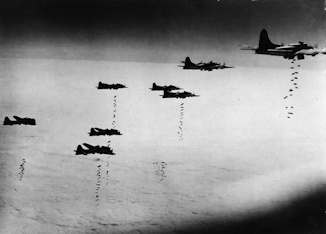
In this war, aviation is as important a factor as it has been a cause – a cause due to its effect on the balance of strength between nations, a factor because of the destruction and death it hurls on earth and sea. Air power is new to all our countries. It brings advantages to some and weakens others; it calls for readjustment everywhere. If only there were some way to measure the changing character of men, some yardstick to reapportion influence among the nations, some way to demonstrate in peace the strength of arms in war.
But with all of its dimensions, its clocks, and weights, and figures, science fails us when we ask a measure for the rights of men. They cannot be judged by numbers, by distance, weight, or time; or by counting heads without a thought of what may lie within. Those intangible qualities of character, such as courage, faith, and skill, evade all systems, slip through the bars of every cage. They can be recognized, but not measured. They lie more in a glance between two men than in any formula or mathematics. They form the unseen strength of an army, the genius of a people.
Likewise, in judging aviation, in its effect on modern nations, no satisfactory measurement of strength exists. It is bound to geography, environment, and racial character so closely that an attempt to judge by numbers would be like counting Greeks at Marathon. What advantages will they gain? What new influence can they exert? To judge this, one must look not only at their aviation but at them, at the geography of their country, at their problems of existence, at their habits of life.
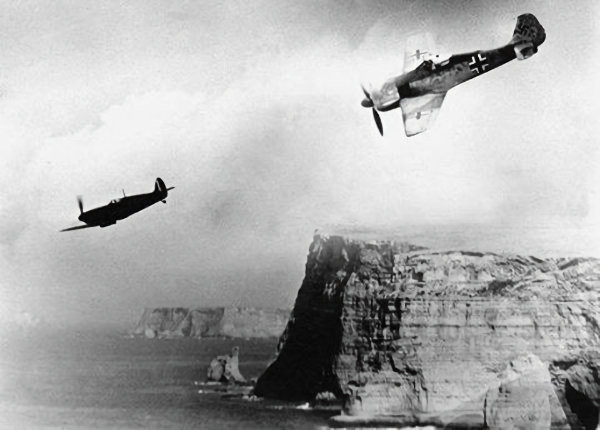
Mountains, coastlines, great distances, ground fortifications, all those safeguards of past generations, lose their old significance as man takes to his wings. The English Channel, the snow-capped Alps, the expanses of Russia, are now looked on from a different height. The forces of Hannibal, Drake and Napoleon moved at best with the horses’ gallop or the speed of wind on sail. Now, aviation brings a new concept of time and distance to the affairs of men. It demands adaptability to change, places a premium on quickness of thought and speed of action. Military strength has become more dynamic and less tangible. A new alignment of power has taken place, and there is no adequate peacetime measure for its effect on the influence of nations. There seems no way to agree on the rights it brings to some and takes from others.
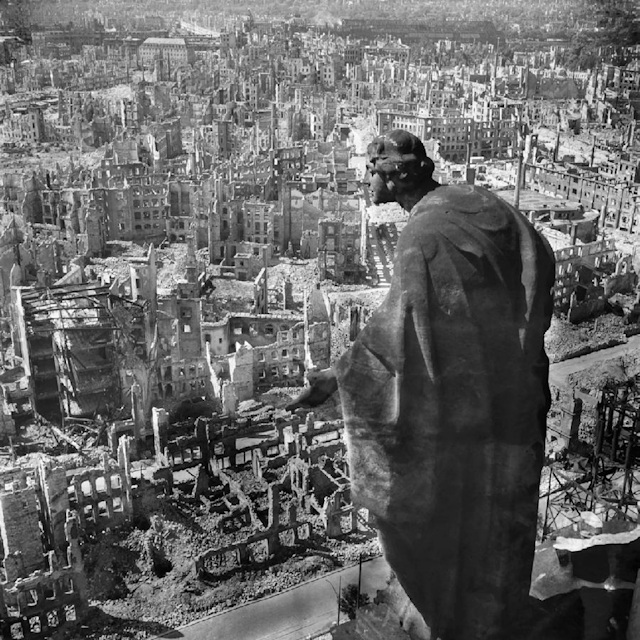
The rights of men within a nation are readjusted in each generation by laws of inheritance – land changes hands as decades pass, fortunes are taxed from one generation to the next; ownership is no more permanent than life. But among nations themselves there is no similar provision to reward virility and penalize decay, no way to reapportion the world’s wealth as tides of human character ebb and flow—except by the strength of armies. In the last analysis, military strength is measurable only by its own expenditure, by the prostration of one contender while the other can still stagger on the field—and all about the wolves of lesser stature abide their time to spring on both the warriors. We, the heirs of European culture, are on the verge of a disastrous war, a war within our own family of nations, a war which will reduce the strength and destroy the treasures of the White race, a war which may even lead to the end of our civilization. And while we stand poised for battle, Oriental guns are turning westward, Asia presses towards us on the Russian border, all foreign races stir restlessly. It is time to turn from our quarrels and to build our White ramparts again. This alliance with foreign races means nothing but death to us. It is our turn to guard our heritage from Mongol and Persian and Moor, before we become engulfed in a limitless foreign sea.
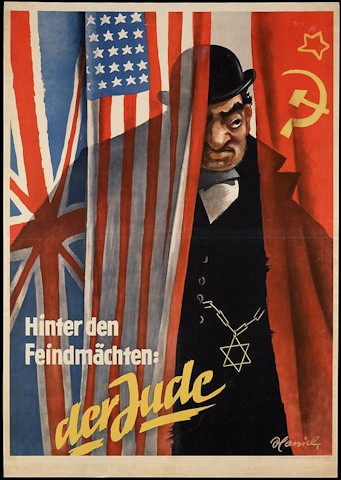
Our civilization depends on a united strength among ourselves; on strength too great for foreign armies to challenge; on a Western Wall of race and arms which can hold back either a Genghis Khan or the infiltration of inferior blood; on an English fleet, a German air force, a French army, an American nation, standing together as guardians of our common heritage, sharing strength, dividing influence. Our civilization depends on peace among Western nations, and therefore on united strength, for Peace is a virgin who dare not show her face without Strength, her father, for protection. We can have peace and security only so long as we band together to preserve that most priceless possession, our inheritance of European blood, only so long as we guard ourselves against attack by foreign armies and dilution by foreign races.
We need peace to let our best men live to work out those more subtle, but equally dangerous, problems brought by this new environment in which we dwell, to give us time to turn this materialistic trend, to stop prostrating ourselves before this modern idol of mechanical efficiency, to find means of combining freedom, spirit, and beauty with industrial life – a peace which will bring character, strength, and security back to Western peoples. With all the world around our borders, let us not commit racial suicide by internal conflict.
We must learn from Athens, and Sparta before all of Greece is lost.

Amerika Erwache!

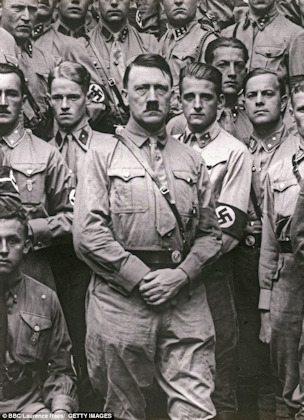
Leave a Reply